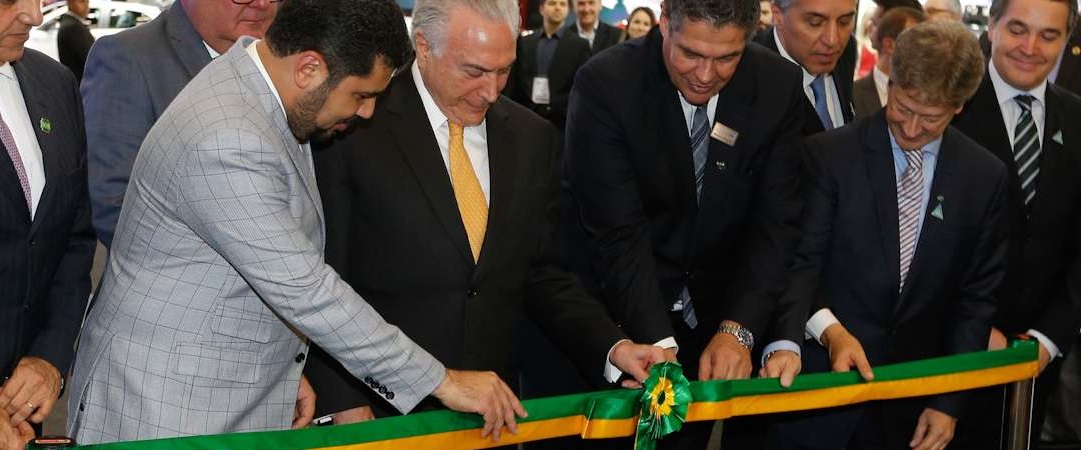
Temer approves Rota 2030 incentive
Nov, 22, 2018 Posted by datamarnewsWeek 201846
Last Thursday, President Michel Temer approved a new Federal Government automotive program know as Rota 2030. It will run for the next 15 years and is designed to stimulate the domestic auto industry by providing tax credits of around R$2.1bn over in 2019 and R$1.5bn in 2020. The program has replaced the WTO condemned Inovar-Auto program which ended last year. Rota 2030 program aims to establish a framework for vehicle production and marketing, as well as improve supply chain management, enhance energy efficiency, and utilize new technologies to meet international standards.
Supporting sources
URL: https://uk.reuters.com/article/uk-brazil-autos-idUKKCN1ND32L
Brazil approves tax breaks for Ford, Fiat, other automakers
Date: 08/11/2018
BRASILIA (Reuters) – Brazil’s President Michel Temer on Thursday signed into law hundreds of millions of dollars in incentives for automakers such as General Motors Co (GM.N) and Volkswagen (VOWG.DE) to produce locally and continue developing engines that run on both gasoline and ethanol.
The plan, known as Rota 2030, replaces a previous package of tax exemptions known as Innova Auto that had expired at the end of 2017. It will also provide incentives to improve the fuel efficiency and safety of vehicles, as well as for investment in research and development.
Brazil, once one of the world’s top five auto producers, is recovering from a two-year recession which saw car sales plummet. Most global automakers have plants in the country, benefiting from tariffs that keep out imports, which they say help offset the country’s high labour costs and often rickety infrastructure.
As signed into law, Rota 2030 will run for 15 years and provide tax credits over the next five years estimated to total 2.1 billion reais ($560 million) in 2019 and 1.5 billion reais in 2020.
The vast majority of Brazil’s cars have so-called “flex” engines which run on both gas and ethanol, produced from local sugar. Rota 2030 lowers by at least 3 percentage points the tax on industrial products applied to “flex” motors.
Brazil’s sugar lobby said in a press release “that the amendment had been developed and suggested by the ethanol industry in line with the demands of the auto industry.”
The bill also renews incentives for the car industry to have assembly plants in the poorer Northeast region of Brazil, where Ford Motor Co (F.N) and Fiat (FCHA.MI) have factories.
Rota 2030 was voted on by Brazil’s lower chamber on Wednesday, by the Senate on Thursday and then signed by Temer, who also attended the inauguration of the Sao Paulo International Motor Show.
-
Oil and Gas
Jul, 21, 2023
0
Bolivia likely to end gas exports to Brazil by 2030
-
Economy
Mar, 11, 2024
0
Peruvian Exports Set to Rise by 2% in First Quarter, Driven by Strong U.S. Economy
-
Shipping
Dec, 19, 2024
0
China Dominates Global Containership Construction as Korean Shipyards Face Decline
-
Ports and Terminals
Nov, 23, 2021
0
CODEBA registers third-largest handling volume in its history

